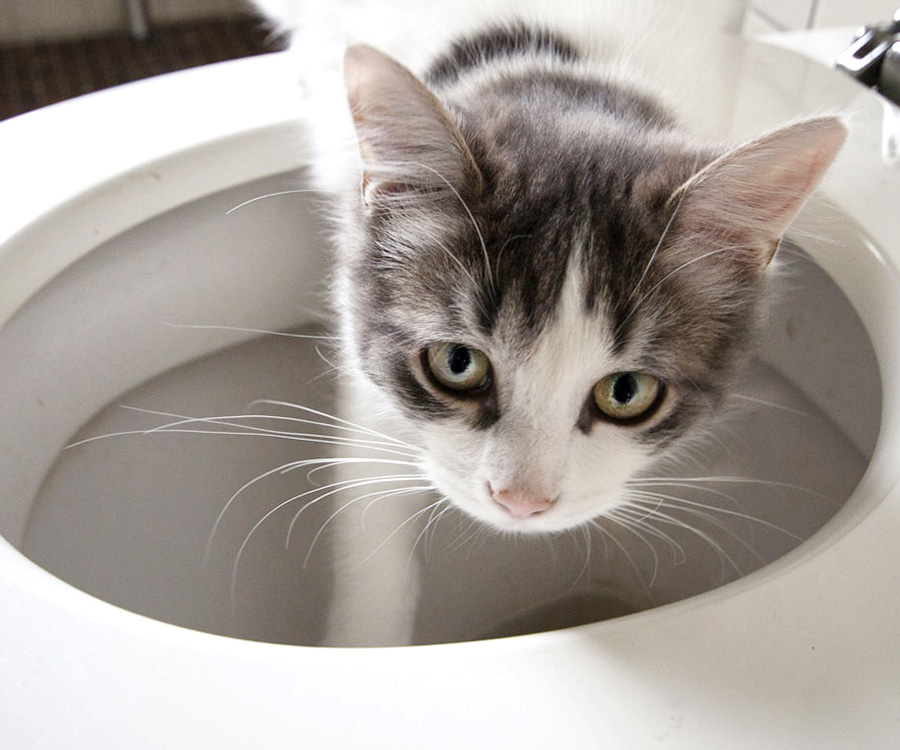The Hazards of Flushing Animal Waste Down the Toilet
The Hazards of Flushing Animal Waste Down the Toilet
Blog Article
Just how do you really feel in regards to 10 Things You Should Never Flush Down The Toilet?

When it pertains to throwing away waste, specifically animal waste, many individuals usually consider the practical choice of flushing it down the toilet. Nonetheless, this seemingly simple service can have serious effects for the environment and public health. In this post, we'll discover why flushing animal waste down the commode is a bad concept and offer different approaches for appropriate disposal.
Intro
Proper waste disposal is vital for preserving environmental sustainability and public health. While it may appear harmless to flush animal waste down the toilet, it can cause different problems, both for the environment and human well-being.
Risks of flushing pet waste
Ecological influence
Purging animal waste introduces dangerous germs and pathogens right into waterways, which can adversely impact marine ecological communities. These virus can infect water sources and damage aquatic life, interfering with delicate communities.
Public health problems
Pet waste includes unsafe germs such as E. coli and Salmonella, which can pose severe wellness dangers to humans. Purging pet waste down the bathroom can pollute water materials, causing the spread of conditions and infections.
Alternatives to flushing
Instead of purging pet waste down the commode, there are several alternative disposal techniques that are extra environmentally friendly and hygienic.
Composting
Composting animal waste is a green method to dispose of it. By composting, raw material is broken down into nutrient-rich dirt, which can be made use of to feed gardens and plants.
Landfill disposal
Getting rid of animal waste in a land fill is an additional choice. While not as eco-friendly as composting, it is a more secure choice to flushing, as it prevents the contamination of water resources.
Pet waste disposal systems
There are customized animal waste disposal systems available that securely and hygienically throw away animal waste. These systems typically use enzymes to break down waste and eliminate smells.
Steps to appropriate pet garbage disposal
To make certain correct disposal of pet waste, adhere to these steps:
Scooping and landing waste
Consistently scoop and bag pet waste making use of biodegradable bags. This prevents waste from polluting the setting.
Using designated waste containers
Dispose of bagged animal waste in designated waste containers, such as garden compost containers or garbage dump containers. Avoid flushing it down the toilet at all expenses.
Cleaning up can and pet locations routinely
Consistently tidy can and here family pet locations to prevent the buildup of waste and bacteria. Use pet-safe cleaning products to maintain hygiene.
Benefits of appropriate disposal techniques
Embracing proper disposal approaches for pet waste supplies several advantages:
Lowered environmental pollution
Correct disposal techniques minimize the risk of environmental pollution, shielding rivers and environments from contamination
Minimized danger of water contamination.
By staying clear of flushing animal waste down the toilet, the threat of water contamination is considerably lowered, protecting public health.
Enhanced hygiene and hygiene
Proper disposal methods advertise much better sanitation and health, creating a more secure setting for both human beings and animals.
Verdict
To conclude, purging animal waste down the commode is damaging to the environment and public health. By adopting different disposal techniques and complying with correct waste management methods, we can minimize the negative influence of pet waste and add to a cleaner, healthier world.
What To Do With Dog Poo – The Do's And Don'ts Of Disposing Of Faeces
Dog poo bins
Some councils provide dedicated dog waste bins in popular dog-walking areas that can take dog poo that has been bagged but you can legally dispose of dog waste in any public litter bin, as long as it is securely bagged. This also applies to your wheelie bin at home.
Do not flush
Water companies do not recommend flushing dog faeces down the toilet because certain parasites can survive the water processing treatment and are potentially harmful to humans. You should also never consider flushing dog poo that has been bagged down the toilet as the bags will not break down and instead create severe blockages in the sewage system.
In the woods
The Forestry Commission promotes a ‘stick and flick’ method for dealing with waste in the woods. This means finding a stick and using it to flick any poo from off the path so that it is out of the way of other walkers. You could also bury it as long as it is not in an area where there might be livestock.
Livestock
Parasites found in dog poo can be transmitted to livestock if they inadvertently eat infected faeces that has been left on grazing land. This could result in the death of sheep or abortion in cattle so you should always make sure you pick up your dog’s waste in fields where livestock could be present.

Consistently tidy can and here family pet locations to prevent the buildup of waste and bacteria. Use pet-safe cleaning products to maintain hygiene.
Benefits of appropriate disposal techniques
Embracing proper disposal approaches for pet waste supplies several advantages:
Lowered environmental pollution
Correct disposal techniques minimize the risk of environmental pollution, shielding rivers and environments from contamination
Minimized danger of water contamination.
By staying clear of flushing animal waste down the toilet, the threat of water contamination is considerably lowered, protecting public health.
Enhanced hygiene and hygiene
Proper disposal methods advertise much better sanitation and health, creating a more secure setting for both human beings and animals.
Verdict
To conclude, purging animal waste down the commode is damaging to the environment and public health. By adopting different disposal techniques and complying with correct waste management methods, we can minimize the negative influence of pet waste and add to a cleaner, healthier world.
What To Do With Dog Poo – The Do's And Don'ts Of Disposing Of Faeces
Dog poo bins
Some councils provide dedicated dog waste bins in popular dog-walking areas that can take dog poo that has been bagged but you can legally dispose of dog waste in any public litter bin, as long as it is securely bagged. This also applies to your wheelie bin at home.
Do not flush
Water companies do not recommend flushing dog faeces down the toilet because certain parasites can survive the water processing treatment and are potentially harmful to humans. You should also never consider flushing dog poo that has been bagged down the toilet as the bags will not break down and instead create severe blockages in the sewage system.
In the woods
The Forestry Commission promotes a ‘stick and flick’ method for dealing with waste in the woods. This means finding a stick and using it to flick any poo from off the path so that it is out of the way of other walkers. You could also bury it as long as it is not in an area where there might be livestock.
Livestock
Parasites found in dog poo can be transmitted to livestock if they inadvertently eat infected faeces that has been left on grazing land. This could result in the death of sheep or abortion in cattle so you should always make sure you pick up your dog’s waste in fields where livestock could be present.

Do you enjoy more info about 10 Things You Should Never Flush Down The Toilet? Place a review down below. We will be happy to hear your opinions about this page. Hoping to see you back again in the future. Sharing is good. Helping others is fun. We treasure reading our article about .
Browse Website Report this page